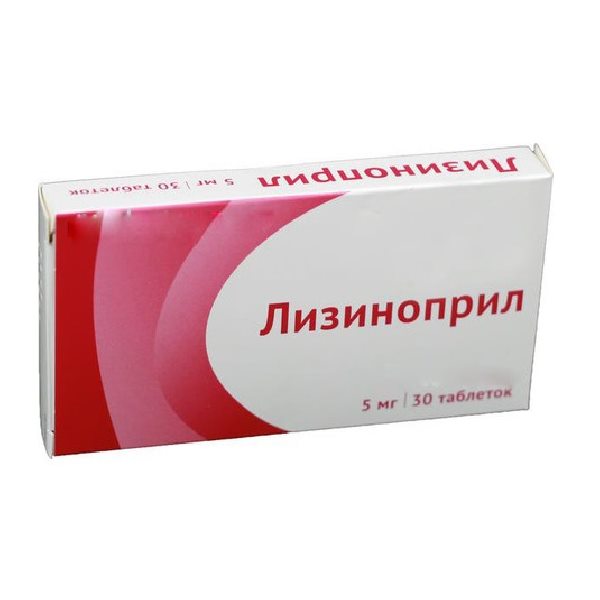You have no items in your shopping cart.

Sku:
pharmachologic effect
ACE inhibitor. The mechanism of antihypertensive action is associated with inhibition of ACE activity, which leads to a decrease in the rate of conversion of angiotensin I into angiotensin II (which has a pronounced vasoconstrictive effect and stimulates the secretion of aldosterone in the adrenal cortex). As a result of the decrease in the formation of angiotensin II, a secondary increase in plasma renin activity occurs due to the elimination of negative feedback during the release of renin and a direct decrease in the secretion of aldosterone. Reducing the secretion of aldosterone can increase the concentration of potassium.
Reduces OPSS (afterload), wedging pressure in the pulmonary capillaries (preload) and resistance in the pulmonary vessels, increases the minute volume of the heart and tolerance to the load.
Lizinopril reduces albuminuria. In patients with hyperglycemia contributes to the normalization of the function of the damaged glomerular endothelium. Does not affect the concentration of glucose in the blood in patients with diabetes mellitus and does not lead to an increase in cases of hypoglycemia.
Indications
Essential and Renovascular Hypertension (in the form of monotherapy or in combination with other antihypertensive drugs).
Chronic heart failure (as part of combination therapy).
Acute myocardial infarction (within the first 24 hours with stable hemodynamic parameters to maintain these parameters and prevention of left ventricular dysfunction and heart failure).
Diabetic nephropathy (to reduce albuminuria in patients with insulin-dependent diabetes mellitus at normal BP and in patients with non-insulin-dependent diabetes mellitus with hypertension).